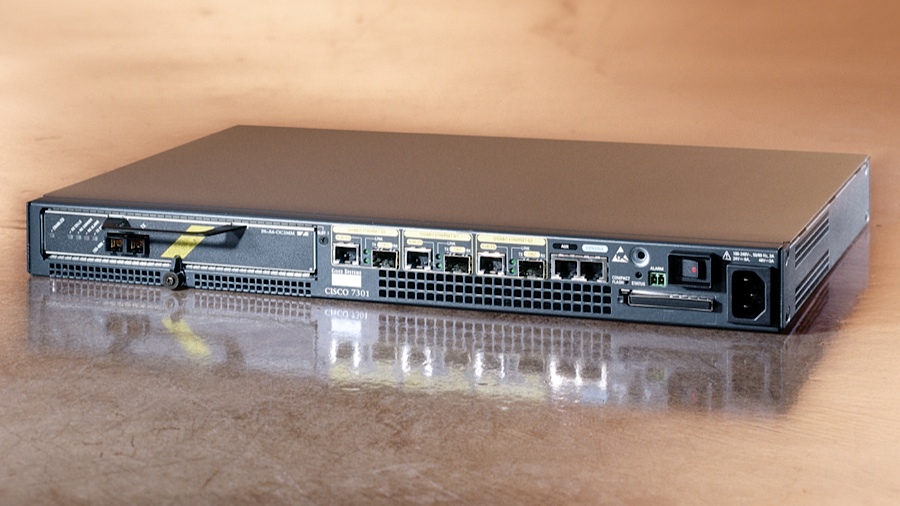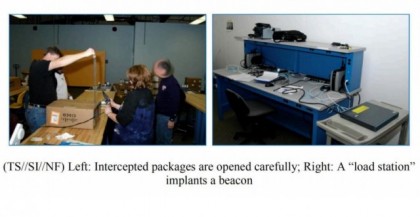Photos reveal NSA tampered with Cisco router prior to export
Caught with hands in virtual cookie jar

For years, the US government has accused Chinese companies of placing surveillance equipment inside routers being exported to America, but this week evidence suggests the exact opposite may be happening.
New photos implicate the US National Security Agency (NSA) in planting "beacons" into servers, routers and other network gear prior to being exported worldwide.
The Guardian originally published details May 12 of how the covert operation works, part of bombshell allegations from the new book "No Place to Hide" by Glenn Greenwald, who claims the US is doing exactly what it's accused Chinese telecommunications manufacturers of in the past.
The same book features a pair of photographs (shown below) which allegedly show the NSA's Tailored Access Operations (TAO) unit intercepting a Cisco router and installing some form of "Trojan horse" into the hardware prior to export.

Beacon implants
The images were pulled from an internal newsletter dated June 2010, showing NSA employees opening the shipping carton for a Cisco-branded router after the package was "redirected to a secret location."
According to Greenwald, one image shows a so-called "load station," where TAO employees install "beacon implants," then seal up the package and route it to the original destination.
Once installed at the destination, the router silently phones home to the NSA, allowing the covert agency to not only survey the network it's connected to, but also "further exploit the device."
Are you a pro? Subscribe to our newsletter
Sign up to the TechRadar Pro newsletter to get all the top news, opinion, features and guidance your business needs to succeed!
An unnamed NSA manager called the operation "some of the most productive" in TAO because of the agency's ability to "pre-position access points into hard target networks around the world."
Via Ars Technica